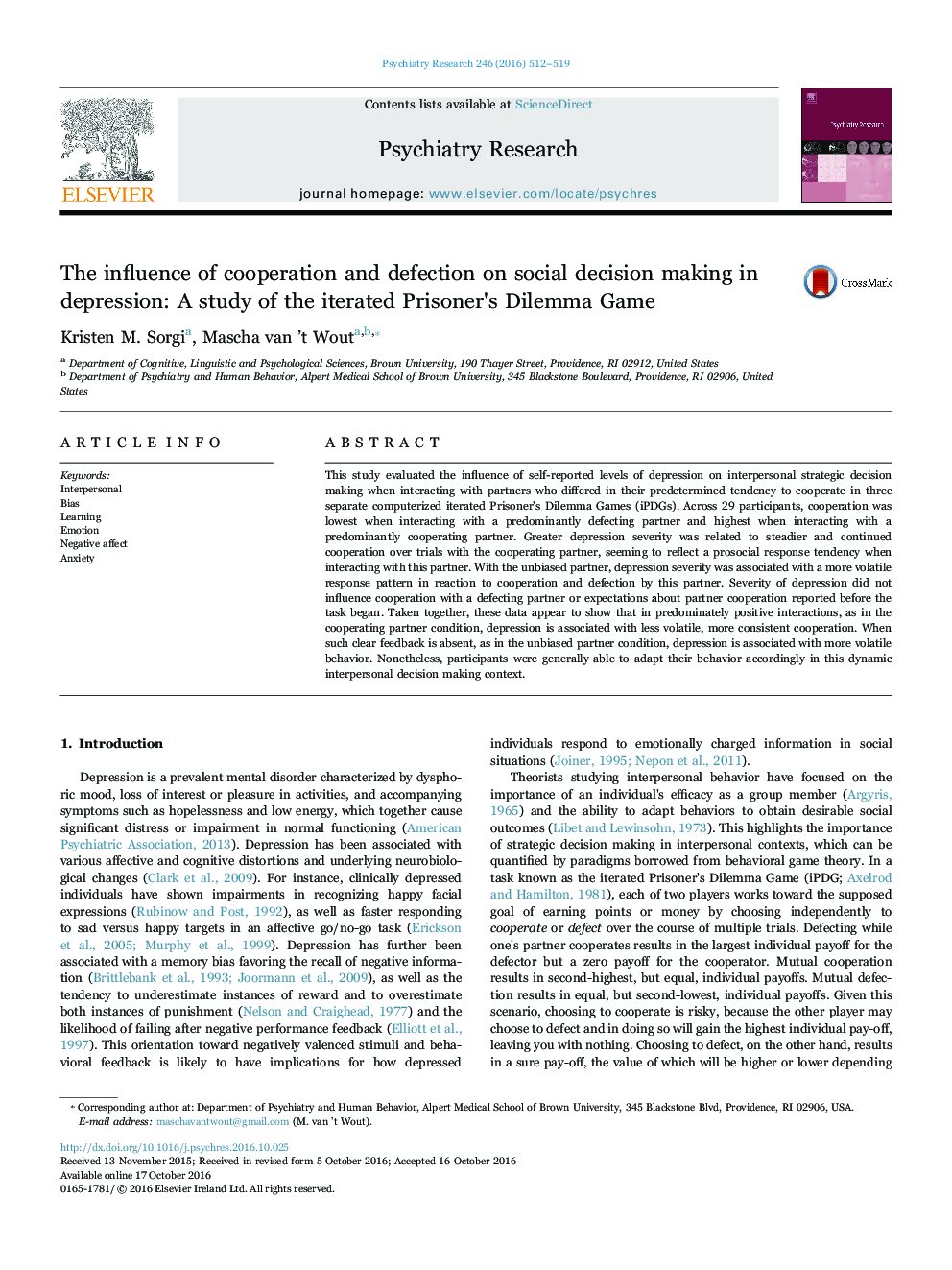| Article ID | Journal | Published Year | Pages | File Type |
|---|---|---|---|---|
| 4933827 | Psychiatry Research | 2016 | 8 Pages |
Abstract
This study evaluated the influence of self-reported levels of depression on interpersonal strategic decision making when interacting with partners who differed in their predetermined tendency to cooperate in three separate computerized iterated Prisoner's Dilemma Games (iPDGs). Across 29 participants, cooperation was lowest when interacting with a predominantly defecting partner and highest when interacting with a predominantly cooperating partner. Greater depression severity was related to steadier and continued cooperation over trials with the cooperating partner, seeming to reflect a prosocial response tendency when interacting with this partner. With the unbiased partner, depression severity was associated with a more volatile response pattern in reaction to cooperation and defection by this partner. Severity of depression did not influence cooperation with a defecting partner or expectations about partner cooperation reported before the task began. Taken together, these data appear to show that in predominately positive interactions, as in the cooperating partner condition, depression is associated with less volatile, more consistent cooperation. When such clear feedback is absent, as in the unbiased partner condition, depression is associated with more volatile behavior. Nonetheless, participants were generally able to adapt their behavior accordingly in this dynamic interpersonal decision making context.
Related Topics
Life Sciences
Neuroscience
Biological Psychiatry
Authors
Kristen M. Sorgi, Mascha van 't Wout,
